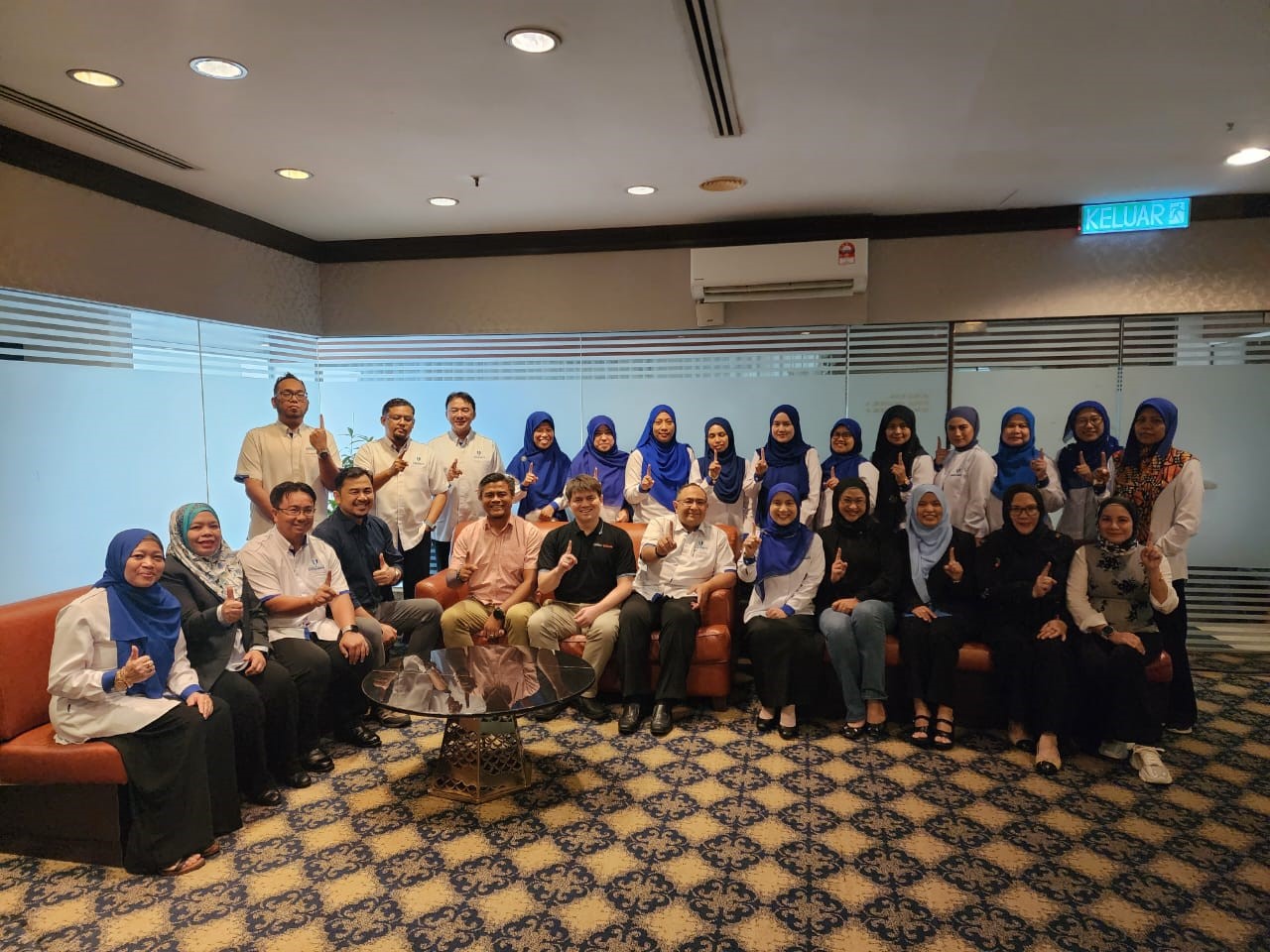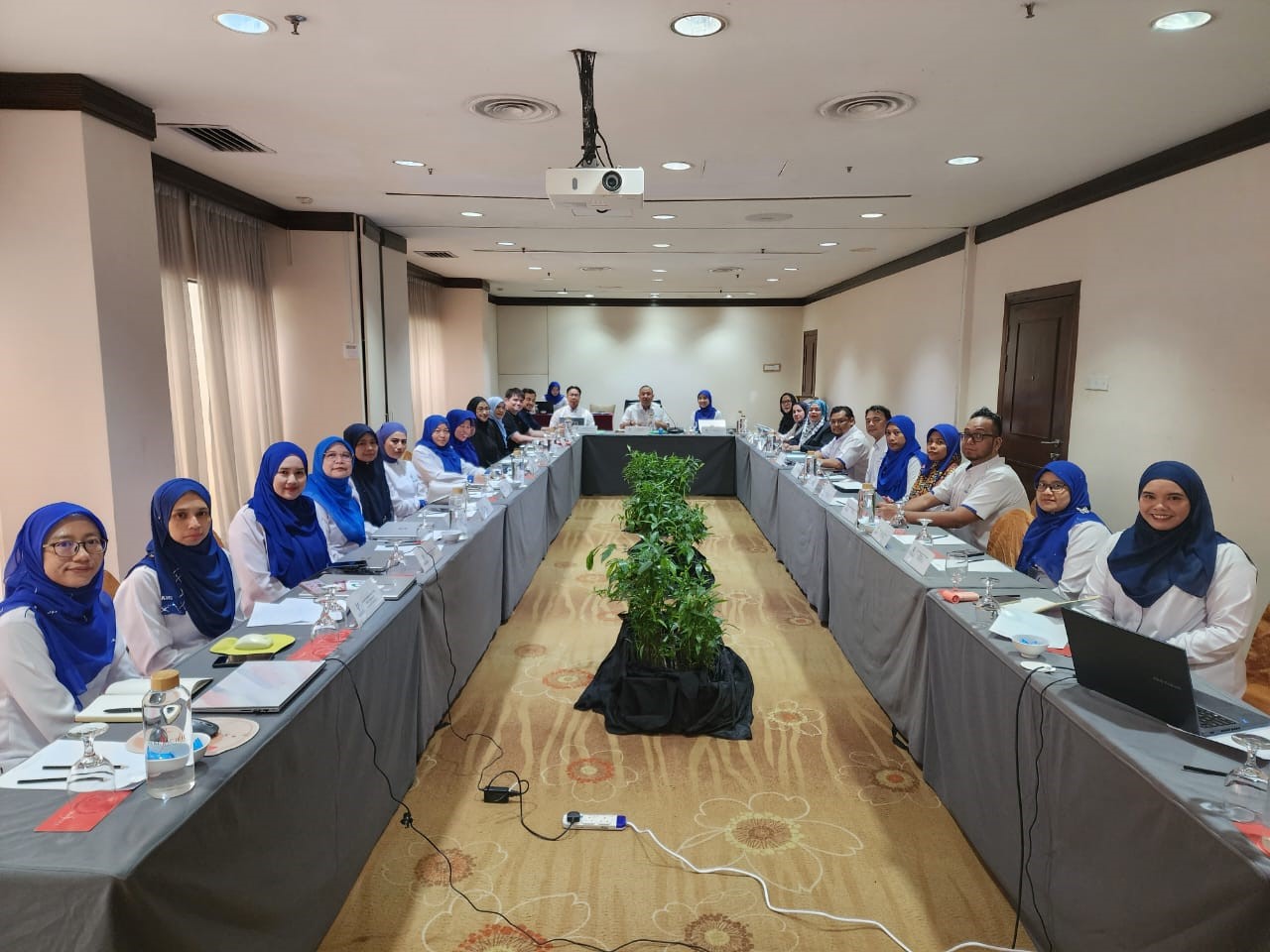Meaningful Dialogue, Impactful Decisions: UMPSA Industrial Advisory Panel (IAP) and Study Committee (SC) Chart the Way Forward for Future-Ready Programmes
KUALA LUMPUR, 3 May 2025 – Combining multiple agendas into one meeting may sound ambitious, but the Centre for Modern Languages (CML), Universiti Malaysia Pahang Al-Sultan Abdullah (UMPSA), successfully brought together its Industrial Advisory Panel (IAP) and Study Committee (SC) meetings which aim for achieving education standard for every study course and programme in CML parallel with industrial needs in one productive session at Seri Pacific Hotel, Kuala Lumpur.
It also held its first-ever walk-in interview in its quest to hire more language lecturers.
The session was attended by five members of the Industry Advisory Panel, Farah Hani Roslan from HRBP at PHN Industry Sdn Bhd, Adli Zaim Awal from Impressive Logging Services Sdn. Bhd., Nursoraya Abdul Rahman from TETO Engineering Sdn. Bhd., Hamidah Khan from Air Asia and Ir. Ts. Noraziah Muda from TNB Research Sdn. Bhd., three Study Committee members, Associate Professor Dr. ZuwatiHasim from Universiti Malaya (UM), Ahmad Thibraani Termizi from LED-chip Package Design and Mohd Jeffery Abdull Manaf from Infineon Technologies Malaysia Sdn. Bhd., the CML Management Team; lead by the dean of CML herself, Profesor Madya Dr. Nik Aloesnita Nik Mohd Alwi, along with six lecturers, ten language teachers, and three administrative staff.
The IAP, comprised of professionals from various industries, plays a crucial role in sharing insights to help keep CML’s programmes aligned with evolving industry needs.
Meanwhile, the Study Committee ensures that academic standards are maintained, and that programme delivery meets national and institutional expectations.
The meeting was chaired by Deputy Vice-Chancellor (Academic and Student Affairs), Profesor Dato’ Ir. Ts. Dr. Ahmad Ziad Sulaiman, who steered the discussion towards a key question: Are the courses we offer truly meaningful and relevant to the working world? Another important point raised was the role of foreign languages (or third languages) in enhancing graduate employability and global outlook.
Constructive input from both the IAP and SC highlighted areas for potential enhancement, such as integrating industry-specific communication modules, workplace English, and exploring the use of digital tools in language learning.
There was also encouraging support for introducing more flexible learning modes and industry-involved teaching methods.
CML is sincerely grateful for the time, expertise, and perspectives shared by all involved.
The session reaffirmed our shared goal-to provide meaningful, high-quality language education that prepares students not just for exams, but for real-world engagement and lifelong learning.
By: Dr. Wan Jumani Fauzi and Athirah Ruzaini, Centre for Modern Languages
- 136 views











